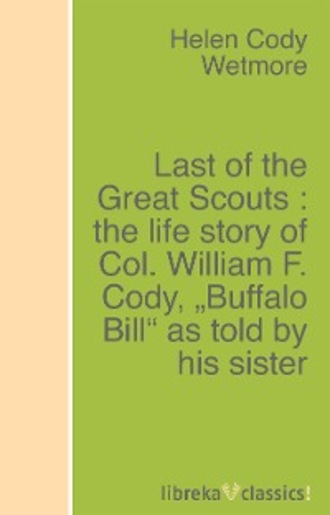Last of the Great Scouts : the life story of Col. William F. Cody, "Buffalo Bill" as told by his sister

Полная версия
Last of the Great Scouts : the life story of Col. William F. Cody, "Buffalo Bill" as told by his sister
Настройки чтения
Размер шрифта
Высота строк
Поля
Конец ознакомительного фрагмента
Купить и скачать всю книгу
